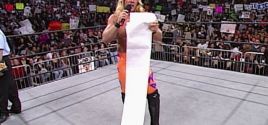British Terror Head: "Be a little bit un-British and inform on each other"By Patrick HennessyThe Telegraph Jul. 08, 2007 |
Popular 
Elon Musk Asks "What Am I Missing?" On Israel - Gets a Mouthful

Facebook's 'Free Speech' Overhaul 'Opened Season on Just About Every Topic Except One'

Report: MAGA 'Influencers' Are Being Paid to Promote Israel, Wind Farms, Weed Legalization And More

Trump Shares Video Saying Netanyahu Conned America Into War with Iraq and is Pushing War with Iran

Assad Advisor Tells Story of Syria's Fall, Suggests Putin 'Tricked' Assad And Left Him Out to Dry
 Britain faces a 15-year battle to end the threat posed by Islamist terrorists, the Government's new security supremo has admitted. Admiral Sir Alan West, the former First Sea Lord, said the overall danger facing the country, from both home-grown and foreign terrorists, was at its greatest ever level and that a new approach was badly needed to tackle it. In his first interview since his surprise appointment by Gordon Brown as security minister, Sir Alan called on people to be "a little bit un-British" and even inform on each other in an attempt to trap those plotting to take innocent lives. "Britishness does not normally involve snitching or talking about someone," he said. "I'm afraid, in this situation, anyone who's got any information should say something because the people we are talking about are trying to destroy our entire way of life." He said he was determined to build on the Government's core anti-terrorism strategy of the "four Ps" - prepare, protect, pursue, prevent - but that the "prevent" side, dealing with the radicalisation of young Muslims, was the most important. "This is not a quick thing," he said. "I believe it will take 10 to 15 years. But I think it can be done as long as we as a nation apply ourselves to it and it's done across the board." Sir Alan gave his comprehensive assessment of the threat facing the country to The Sunday Telegraph following last weekend's car bomb attacks in London and Glasgow. Yesterday, Bilal Abdullah, a 27-year-old doctor, was remanded in custody at Westminster magistrates' court on a charge of conspiring to cause explosions in connection with the Glasgow attack last Saturday. At King's Cross, Mr Brown joined survivors and relatives of victims to commemorate the second anniversary of the July 7 bombings in London, while there were reports that up to eight police officers and civilian staff in Britain were suspected of having links to al-Qaeda. The Sunday Telegraph can also reveal that Dame Eliza Manningham-Buller, the former director general of MI5, has disclosed that there are now more than 100 suspects awaiting trial across the country in 40 terrorist-related cases and warned of the possibility of an imminent chemical or biological bomb attack. Sir Alan said that, after little more than a week in the job, it was clear to him that the overall threat had increased since he left his Navy post 16 months ago. He said: "There is a greater threat than there was." Britain was now fighting "a disparate core of people - based abroad primarily - whom I'm afraid are racist, they're bigoted, they seek power, they're avaricious in money terms and they talk of the caliphate." He said that he had been asked by Mr Brown shortly before he took over from Tony Blair to "sort out" the Government's response to the terror threat. "We are not getting our message across properly," Sir Alan said. The 59-year-old who was chosen by Mr Brown as a non-partisan figure, said he would work to achieve a political consensus "wherever" possible - but added that it was inevitable that "disagreements" between the parties and across Whitehall would cause difficulties. The admiral, who has been given a far-reaching brief across all government departments, also launched an attack on the phrase "war on terror" - which has been abandoned by ministers since Mr Blair left office. He said: "I hate that expression. When I first heard it - I think it came over from the States - I though it was totally the wrong thing. It's not like a war in that sense at all. It demeans the value of a war and it demeans the value of a lot of things. "I don't like the fact that we talk about 'the Muslim community' and this sort of thing. I have a lot of Muslim friends and they see themselves as British. We've got to be very careful. The threat is to our British way of life and all of our British people." Of the terrorists, he said: "I think they have severely damaged one of the world's great religions - the one they purport to support." The claims that British foreign policy was solely to blame was an erroneous argument, he said. "It's not something that has happened recently. Iraq, for example, they use that as an excuse. There's no doubt the Middle East peace process is an important issue but actually when we were having men killed fighting to look after Muslims in Bosnia and in Kosovo, these people even then were trying to undermine us and ... cause damage to us." He said he was in favour of giving the security services more money and staff "if there is a need for that". Sir Alan, who will become a Labour life peer, was commander of the frigate Ardent in the Falklands in 1982. The ship was sunk with a loss of 22 crew. In 2002, he became First Sea Lord and Chief of the Naval Staff. While in the post he became a fierce critic of the Government's naval cutbacks. Sir Alan said he had been "amazed" to be offered a ministerial job by Mr Brown and had taken a "considerable drop in money". When he marched out of No 10 alongside Jacqui Smith, the new Home Secretary, few if anybody knew who he was. He said he had a text message from a Royal Marines general, a friend serving in Afghanistan and watching a television link, to ask if he had "become a bodyguard." |



